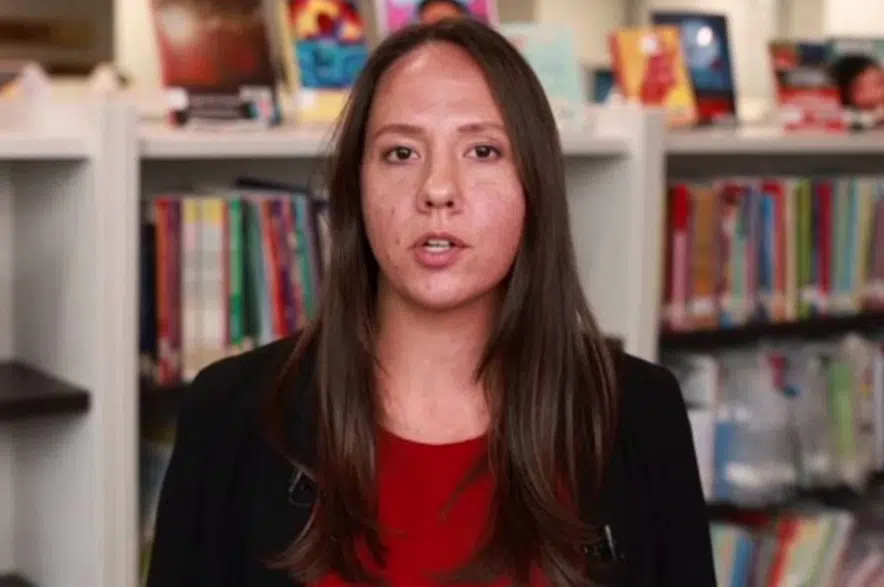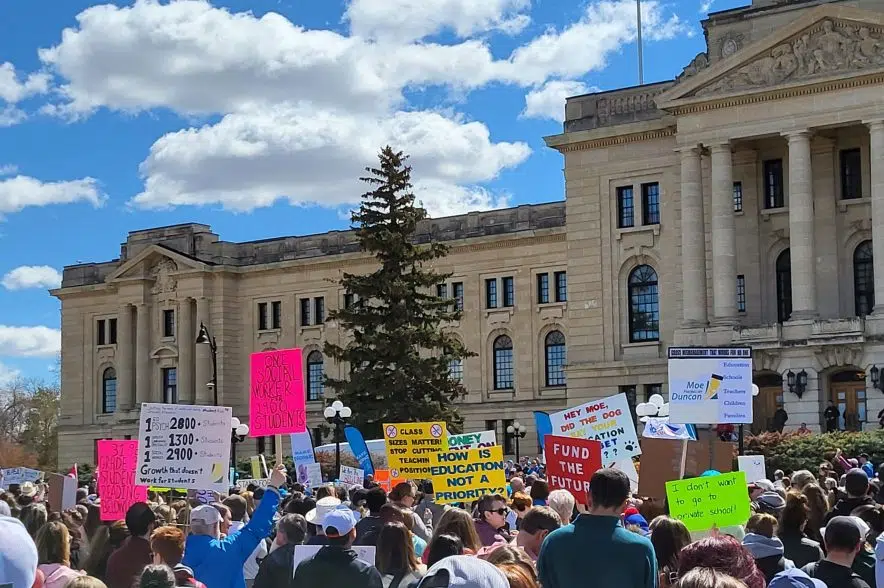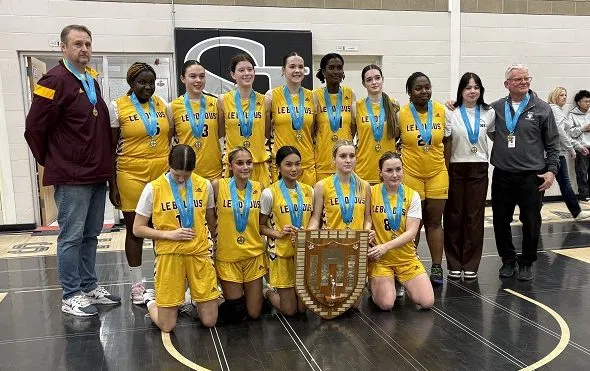Teachers across the province are to vote next week on sanctions, which could result in future job action as the Saskatchewan Teachers’ Federation (STF) accused Premier Scott Moe of emphasizing “wedge issues” amid collective bargaining.
“The government is leaving us no other option. We’ve met nine times and there has been no significant movement on issues that are important to teachers, students and families,” STF president Samantha Becotte said in a news release.
The Teachers’ Bargaining Committee states teacher-student ratios are a pressing concern, citing a 2.1 per cent increase in enrolment for the 2022-23 school year as the number of classroom teachers declined by 0.7 per cent.
The committee also points to notable reductions in EAL teachers, school counsellors and psychologists.
“The Premier and his education minister have made a political choice to cut education funding and leave salary increases well below the rate of inflation for almost a decade. Instead, they are focusing all their attention on divisive wedge issues,” Becotte stated in the release.

Saskatchewan Teachers’ Federation president Samantha Becotte describes negotiations with the province as “pointless” in a news release declaring an impasse Monday.
Last week, protesters opposing Saskatchewan’s controversial education policies gathered at the Legislative Building as the government aimed to make the new polices law. The new policies require parental approval for sex education classes and when young students wish to change their names or pronouns.
“The lack of accountability and callous approach is abhorrent. Saskatchewan families deserve a government that works for them,” Becotte said.
The STF news release, posted Monday, declared an impasse in negotiations with the Government-Trustee Bargaining Committee, and said teachers will vote on sanctions on Oct. 24-25.
Some actions teachers could take include pausing extracurricular activities at school or performing rotating strikes.
“We always want to reach an agreement through negotiations. And we will return to the table, day or night, any time the government is prepared to actually negotiate,” Becotte said in the release. “But as it stands today, this is pointless.”
The two sides began negotiations on a provincewide agreement for roughly 13,000 K-12 teachers in June.
At that time, the union put forward what it called a detailed salary package, and a series of proposals aimed at reducing overcrowded classrooms, added support for children who need special services, and classroom violence.
The provincial government responded with a billboard campaign that said Saskatchewan teachers are among the highest-paid educators in Western Canada with average salaries of $92,000 per year.
The STF responded by accusing the government of a “misleading and ridiculous” campaign, saying it takes 10 years before the average Saskatchewan teacher makes $92,000 per year.
“What a waste of time and money,” Becotte said at the time. “They’ve proven once again they don’t care about students and their learning environment and instead want to create division by suggesting teachers are the villains.”
In a statement to 980 CJME in July, the government said the bargaining committee proposed a seven per cent increase to teachers over three years. The statement said the government believed that is a fair deal “that recognizes the important work of Saskatchewan teachers.”
Editor’s note: This story was updated to clarify that teachers are voting on sanctions next week, which could lead to possible job action.







